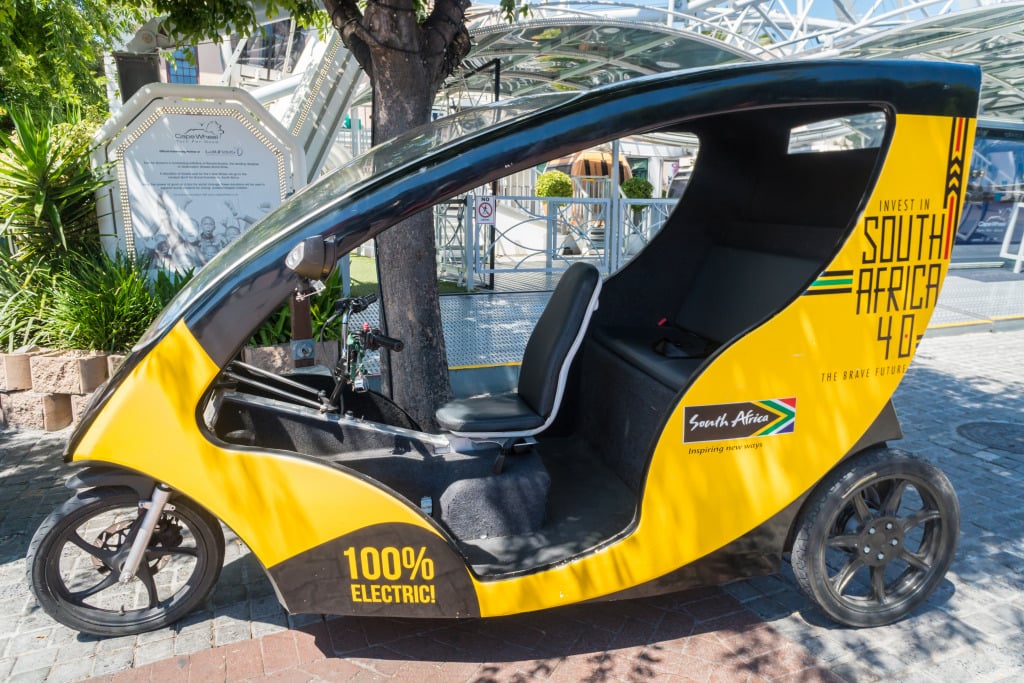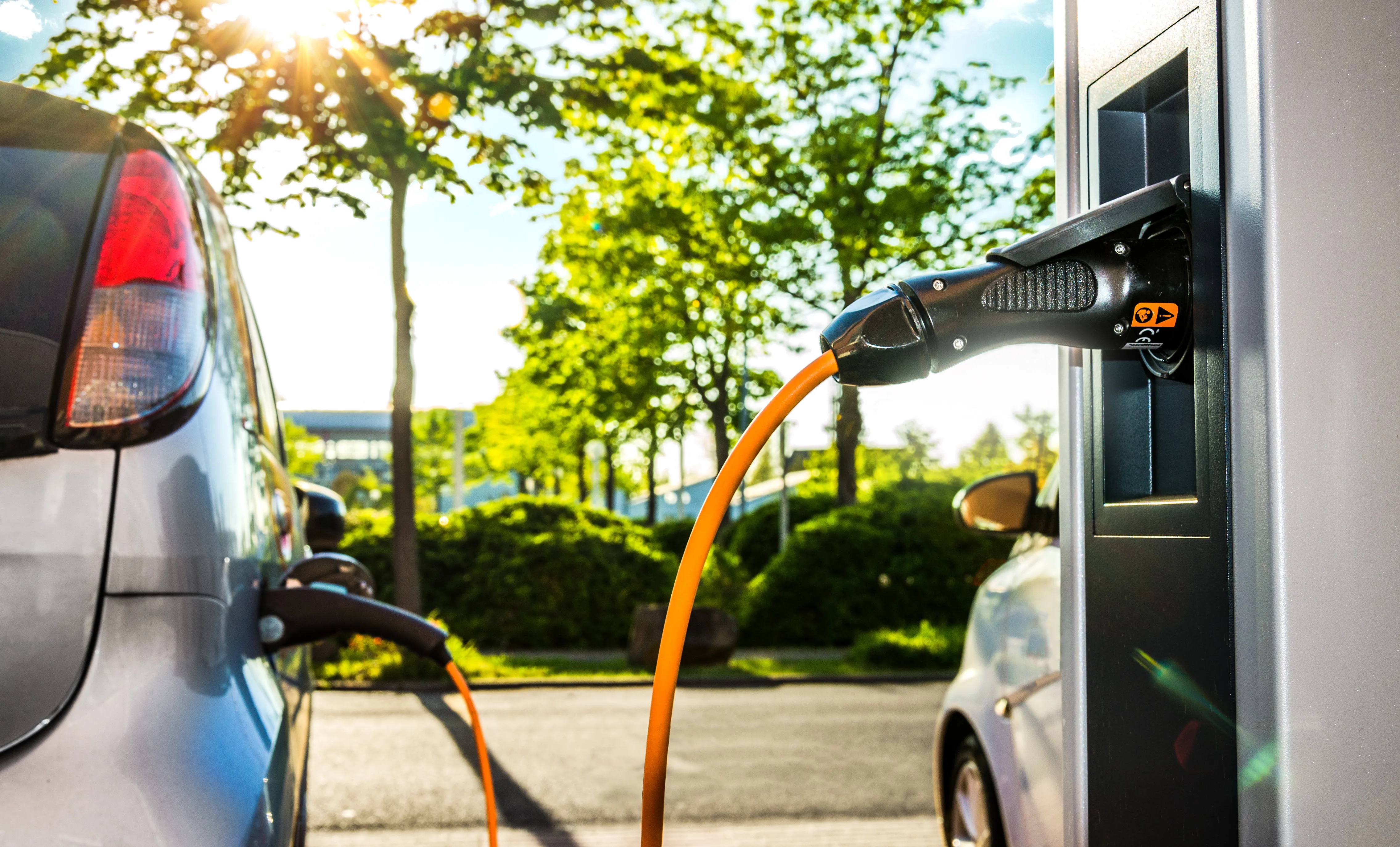From the Cape to Cairo, green tech startups are leading Africa’s charge towards electric mobility, a critical intervention in the fight against climate change driven by a global tide in the use of electric vehicles (EVs). However, the continent’s shift to electric mobility lags behind Europe, the US and China, the global frontrunners in electric mobility.
South Africa sold only 92 battery electric vehicles (BEVs) in 2020, down from 154 in 2019, representing 0.02% of domestic vehicle sales. Hybrid sales declined from 253 units in 2019 to 232 units in 2020.
Nonetheless, several countries are developing comprehensive policy frameworks to catalyse the transition and adoption of electric mobility.
Momentum is anticipated to escalate especially after the European Union (EU) in mid-July proposed to phase out diesel and petrol car sales in a major market shift by 2035. This decision will positively impact African countries like South Africa, which exports nearly 64% of its manufactured vehicles to global markets.
Jane Akumu, a programme officer with the United Nations Environment Programme (UNEP), says that while Africa trails other parts of the world in e-mobility, the continent is awakening to the opportunities in the EV market, especially in electric two- and three-wheelers where there is potential for green jobs, local manufacturing and assembly, cleaner renewable energy, and business opportunities in charging and battery swapping.
“We see an interest in many African governments and the private sector in e-mobility today. There is increased interest in more countries to incentivise the uptake of EVs, like Kenya, Ethiopia, Senegal, Côte d’Ivoire and many more where the governments are looking at EV uptake,” she says.
UNEP, through its Global E-Mobility programme, has been helping African countries to come up with the right policies to switch from fossil fuel mobility to electric mobility. Some 19 countries have allocated part of their Global Environment Facility funding to electric mobility but UNEP would like to see more countries and cities make clearer pronouncements such as the dates when they will phase out internal combustion engine vehicles.
Early leaders in the market
South Africa, Mauritius, Seychelles, Rwanda, and North African countries are the early leaders in the EV market, according to UNEP.
“We see governments reviewing their taxation structure, adopting EV policies and standards to favour EV uptake, and the private sector is also keen to have a share in this market. We have close to 50 startup companies in Kenya in the electric two- and three-wheeler space and by May 2021, there were about 18 e-mobility companies, with more being established faster than ever before,” she says.
Akumu says that in West Africa 15 Ecowas states have adopted a regionally harmonised fuel economy roadmap that includes targets for EVs. New tax measures introduced under the fuel economy initiative in Mauritius in 2019, such as reduction in excise duties by 5-15% depending on the type of electric car, have resulted in a significant increase in hybrid and electric vehicles to 14,060 units and 206 respectively in January 2020 compared to just 43 hybrid vehicles and two electric cars a decade earlier.
Shift in East Africa
The Kenya-based Association for Electric Mobility and Development in Africa (AEMDA) says that East Africa has been the centre of Africa’s radical shift to electric mobility. Rwanda leads in the promotion of e-mobility through its recent raft of policy measures that include reduced electricity tariffs for EVs, zero VAT tax on EV consumables, exemption from import and excise duties and rent-free land for charging stations.
Kenya has also gained critical market momentum to increase the adoption of electric mobility and has set a target of 5% of all newly registered vehicles to be electric by 2025.
“In Kenya, 64% of market players in e-mobility have invested in local assembly. We foresee a high demand for EVs especially in the two- and three-wheeler segment which would be more affordable compared to four-wheelers,” says the AEMDA.
In North Africa, Morocco plans to achieve 23% energy savings in the transport sector by 2030 while Egypt is working on a national e-mobility strategy. Egypt is trialling 12 electric cars and plans to produce its first 100 in August 2022, while the country will build 3,000 charging stations in a joint manufacturing deal between El Nasr Automotive Manufacturing Company and the Chinese Dongfeng Motor Corporation.

South Africa stimulates demand
In light of the EU’s planned 2035 phasing out of internal combustion engine vehicles, Mikel Mabasa, chief executive officer of the National Association of Automotive Manufacturers of South Africa (Namsa) says the country has accelerated e-mobility by stimulating demand for EVs in the domestic market as well focusing on the manufacture of EVs and EV components in the future.
“Hybrids, which fall under the EV definition, are already manufactured in the country by Mercedes Benz (the C-Class) while the Toyota Hybrid will be launched in October 2021,” he says.
In May, South Africa drafted a green paper on new energy vehicles, which Namsa actively contributed to. Mabasa says Namsa and the government have appointed consultants to undertake a cost-benefit modelling research study to come up with an incentive framework under the Automotive Production Development Programme Phase 2 as part of the South African Automotive Masterplan (SAAM) 2021-35, implemented from 1 July 2021, with the objectives to produce 1.4m vehicles per annum by 2035, and increase local content in vehicles from 40% to 60% on average. EVs will play an increasingly important role under the SAAM from 2035 onwards, he says.
Zimbabwe too is working on an electric mobility policy framework and roadmap, expected to be functional by year-end.
Advantages of EVs
Despite the huge potential of e-mobility in Africa, its proponents say growth is limited by very common challenges including low demand for EVs, lack of supportive regulatory frameworks, high costs of power and a lack of reliable energy and charging infrastructure. Akumu says the main barrier to EV adoption in Africa is awareness because most people think that EVs are expensive, more complicated to run and require surplus power to operate.
“You will hear many people saying they would not buy an EV because of power blackouts. In fact, countries in Africa can take advantage of used EVs, which are more affordable and cheaper to operate,” she argues. In Kenya, she says, the power utility provider is keen to promote EVs because of excess power supply at night which goes to waste and could be used to charge EVs at night.
Mabasa says that the main factors inhibiting new vehicle sales on the continent include low purchasing power, the absence of vehicle financing options and fierce competition from used vehicle imports. Africa could increasingly become a dumping ground for phased out internal combustion engine vehicles from elsewhere.
“New technologies are normally expensive until mass adoption of the technology occurs. At present only the BMW i3, Mini and Jaguar i-pace EV models are available in South Africa. They are expensive, premium level vehicles, and therefore the current low sales volume. Once greater choice and cheaper models are available sales will increase no doubt as adequate charging infrastructure and plug type standards are already in place.”
A recent survey conducted by the AEMDA identifies lack of policy, including investment, limited charging infrastructure, low consumer awareness of EV products and services, and taxation issues as key barriers. Key stakeholders in the electric mobility industry all agree that ambitious policies and economic stimuli are required to ensure a fast transition to EVs and a well-planned roll-out of charging infrastructure with sufficient energy is urgently required to grow the EV market.
Given chronic power shortages in Africa, smart grids fed on renewable energy can help the transition, reduce emissions and enable countries to meet their climate targets.
UNEP points out that two biggest areas with e-mobility potential are the two- and three-wheeler market and e-buses. In West and East Africa, two- and three-wheeler importation exceeds that of cars, underlining the importance of the sector.
With the soaring demand for minerals for battery and electric vehicles, Africa with its rich deposits of lithium, copper, cobalt and other minerals is well placed to build EVs and could be a key player in their manufacture.
Want to continue reading? Subscribe today.
You've read all your free articles for this month! Subscribe now to enjoy full access to our content.
Digital Monthly
£8.00 / month
Receive full unlimited access to our articles, opinions, podcasts and more.
Digital Yearly
£70.00 / year
Our best value offer - save £26 and gain access to all of our digital content for an entire year!
 Sign in with Google
Sign in with Google 



